- Pothead
- Posts
- What is 'California sober'?
What is 'California sober'?
and how is weed helping hundreds off hard drugs?
Hey buds…
Last time, we got a little too excited talking about hemp… so your email may have gotten clipped. Lesson learned. 💡
To keep things crisp (and fully visible), we’re tightening up the format. For now, you’ll still get a Breaking Bud story, Freshly Rolled news, and a Puff Puff into the past just more compact.
For all other yappings… we’ve got something new coming soon.
Okay it’s a website. With blog. So I guess we’re telling you to stay tuned.
If you’re enjoying this newsletter please pass it on to a friend and follow us at Bluesky for more! 👀


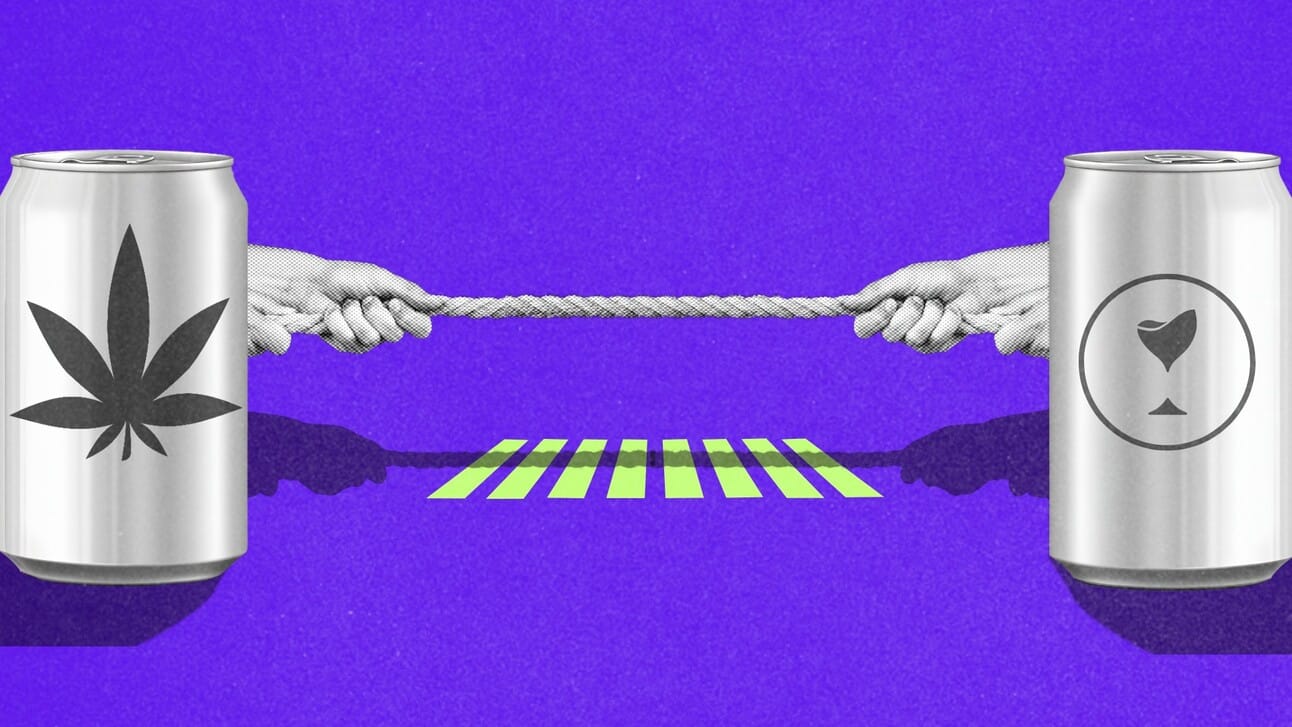
The Curious Case of ‘California Sober’!
Apparently the wine industry is mad at Cannabis.
We would be too if sales had dropped 8% in 2024 and were looking even drier heading into 2025.
Some are blaming it on the rise of ‘California Sober’…
And what the fuck is that?
Exactly what it sounds like: Cutting out alcohol and hard drugs but keeping weed in rotation. Honestly? Sounds like a dream. The term was likely first coined by Michelle Lhooq in this Vice article, but if you’re looking for the formal definition, Urban Dictionary puts it like this:
A form of Harm Reduction that utilizes only Marijuana and Plant Based Medicines. Hard Drugs, and Alcohol are excluded under California Sobriety.”
Swapping your brutal hangover for an edible or a low-dose cannabis drink isn’t isn’t new news. And as Gen Z is looking more and more sober-curious, you know the wine industry is holding some tense roundtable discussion (probably over a stiff drink).
Alcohol has long been linked to:
Anxiety
Elevated heart rate
Depression
Poor concentration
Cardiovascular disease
Diabetes
Long-term cognitive impairment
And let’s not forget its known link to cancer
Yet, alcohol is still a legal giant and people are freaking out over the fact that a recent study found a correlation between heavy lifetime cannabis use and working memory in young adults.
Science is science but don’t forget to zoom out for the whole picture before the fearmongering starts please.


High Times is a long way from its glory days—dispensaries shutting down, business struggling, and now, even more trouble.
Adam Levin (not the singer), the founder and chairman of Hightimes Holding Corp is pleading guilty to a conspiracy charge.
What happened? He and some buddies slipped over $150K to an analyst at “Palm Beach Venture” (an investment newsletter) to hype up Hightimes stock—without telling investors. That promo helped raise at least $6 million.
What’s Next? Levin is set to appear in court on January 14.
Founded by the late activist Neil Magnuson, Vancouver’s Cannabis Substitution Project (CSP) offers free and low-cost cannabis products to help individuals transition away from substances like fentanyl, heroin and methamphetamine in the Downtown Eastside community.
Even though medical weed is legal in Vancouver, the cost remains a serious barrier for many in recovery, who would have to pay around $200 a week for their current supply.
As CSP volunteer Wells puts it: “I take 100 milligrams per night. That would be $30 every night.”
As Elon pushes to make Twitter a political shitshow, most recently urging Germans to vote for a far-right party, the EMA has packed up and left.
And they’re not alone…
Germany’s foreign and defense ministries, The Guardian, and many UK universities have all dipped from the platform, mostly over concerns about X’s content.


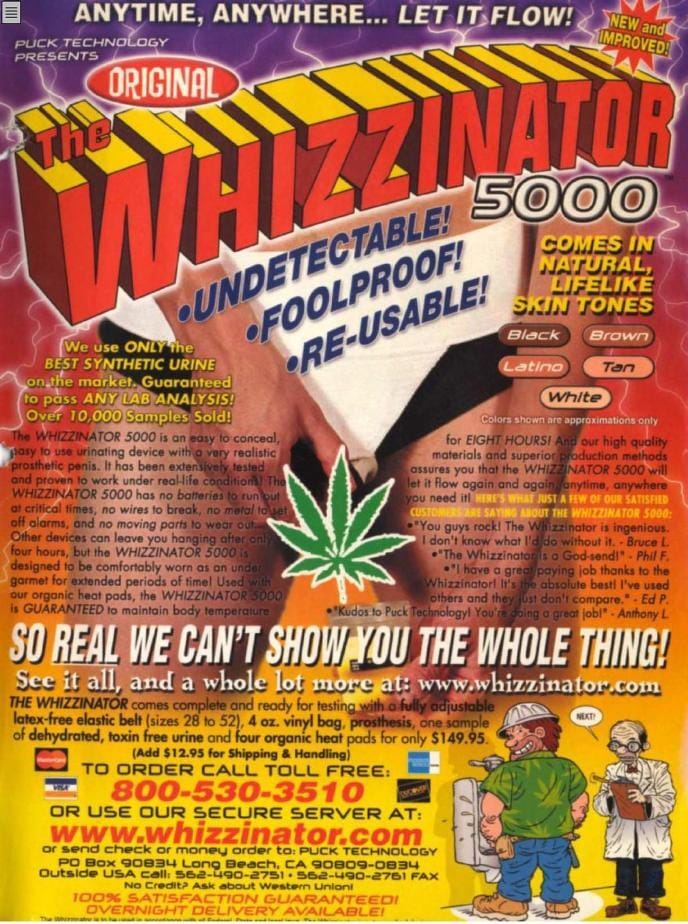
Old ads in High Times Magazine helped readers "TEST CLEAN."
Drug tests analyze biological specimens like urine, hair, or saliva to detect drugs or their metabolites.
It began after the Vietnam War when President Nixon ordered military urine tests, revealing high heroin use—42% of U.S. military personnel in Vietnam had used opioids, with half becoming dependent.
Notable incidents, like the 1981 USS Nimitz accident, which caused 14 deaths and over $200M in damages, further fueled the push for drug testing.
Urinalysis revealed high concentrations of marijuana components in the deck crew but not in three members of the flight crew involved in the crash, according to Navy Secretary John F. Lehman. The body of the fourth flight crew member was not recovered.
Nevertheless, the push for Drug Testing continued. By 1988, Reagan's Drug-Free Workplace Program which specified that:
(a) Federal employees are required to refrain from the use of illegal drugs.
(b) The use of illegal drugs by Federal employees, whether on duty or off duty, is contrary to the efficiency of the service.
(c) Persons who use illegal drugs are not suitable for Federal employment. But is drug testing invasive and problematic?
From NORML on drug testing: ”Prospective employees have no legal right to challenge pre-employment drug screens. However, workers who are already employed may be able to challenge their employers’ drug testing plans in certain situations depending on labor law and local regulations. Avoid signing anything that gives your boss the right to arbitrarily test you; by stating your objections, you will strengthen your right to refuse a test. If you think you are being unjustly tested, you may have cause for legal action. “
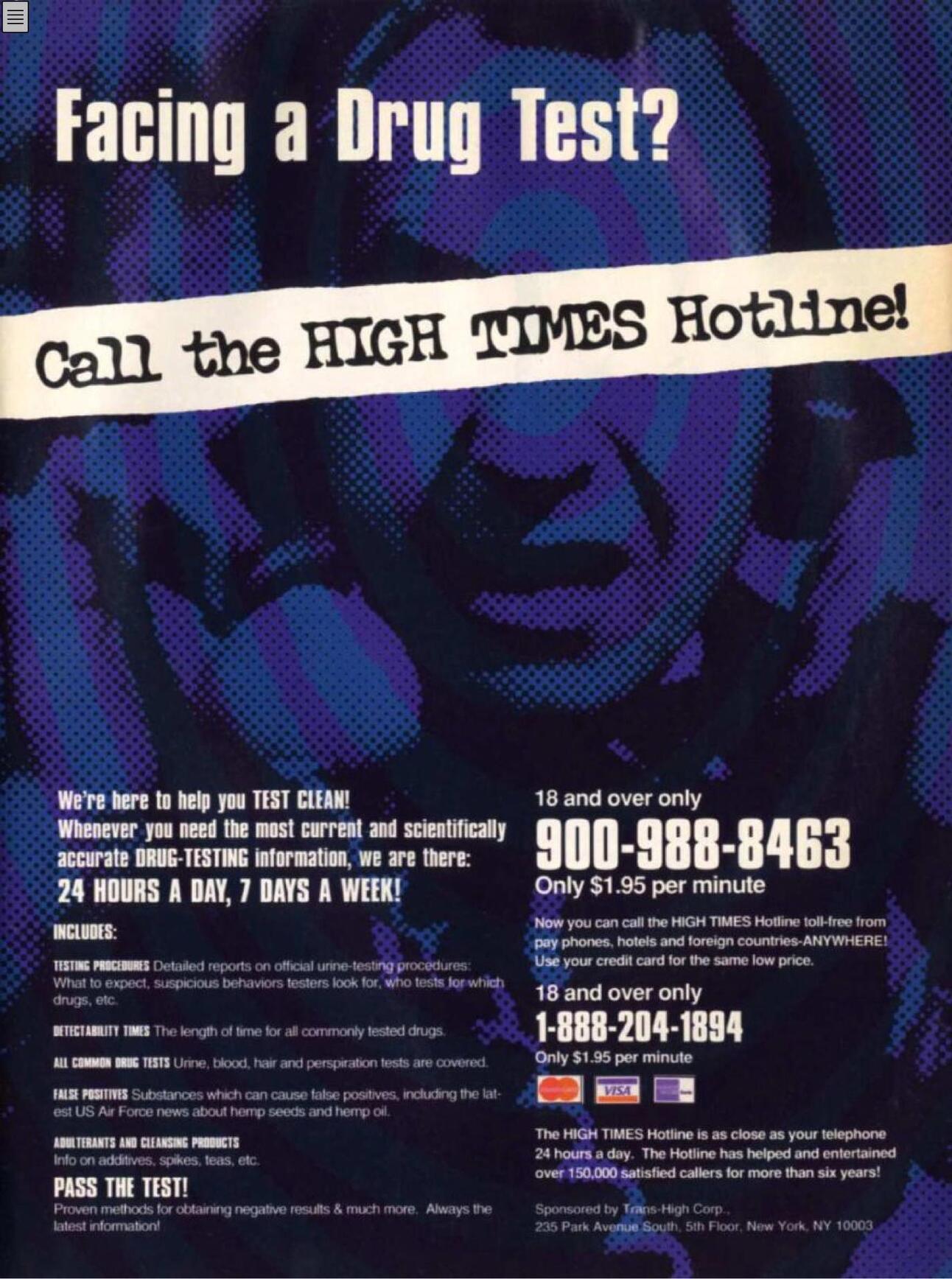 | 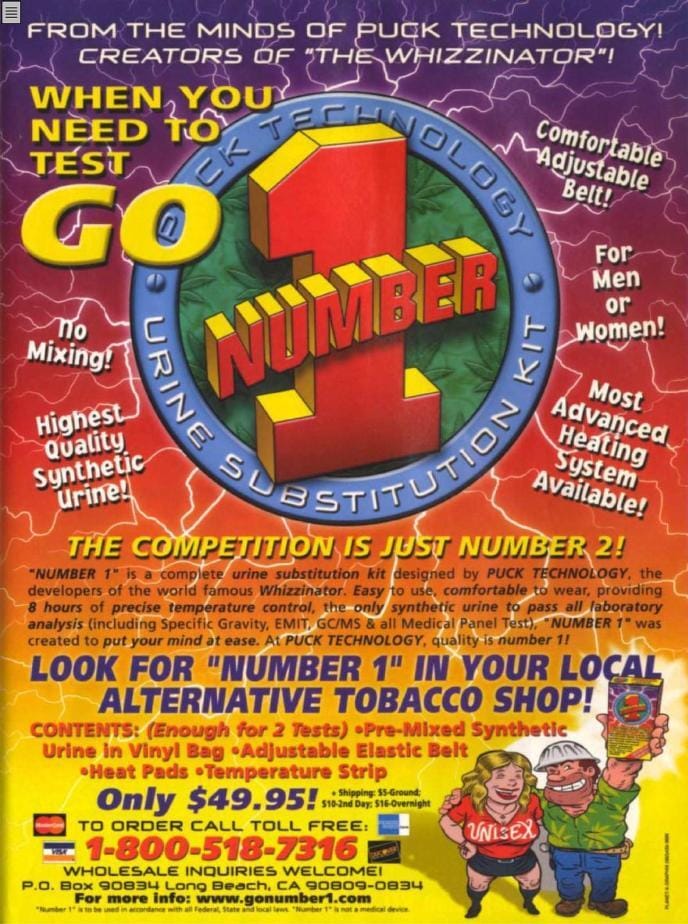 |
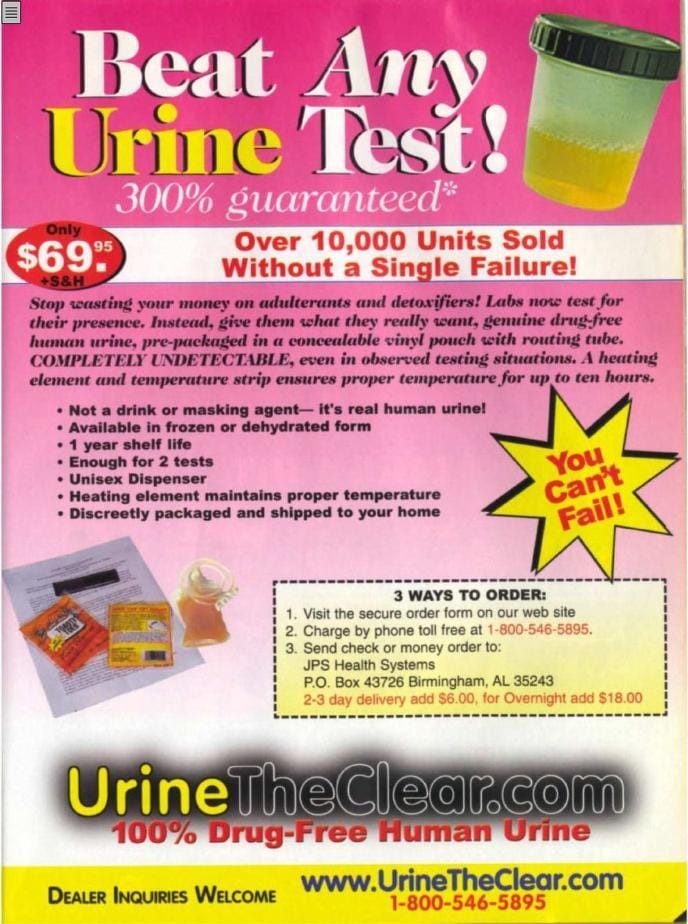


That’s it for this week’s puff!
If you liked what you read, please pass it to a friend and let’s grow our circle.
Got thoughts? Ideas? Feedback? Or just wanna say hi?
Hit reply - we read everything!
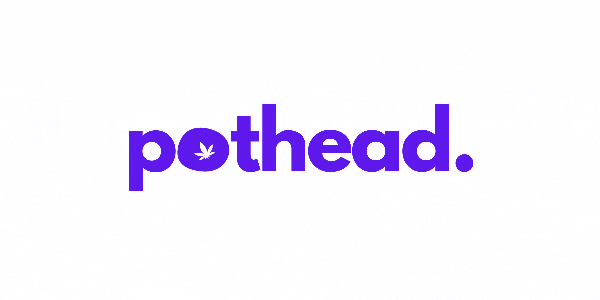
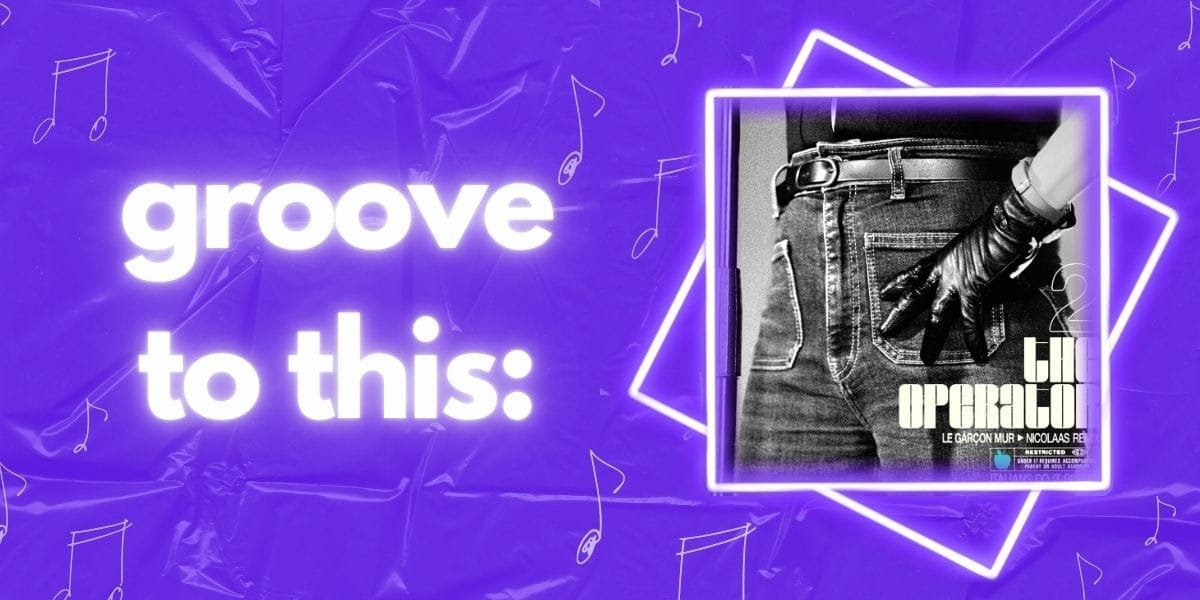
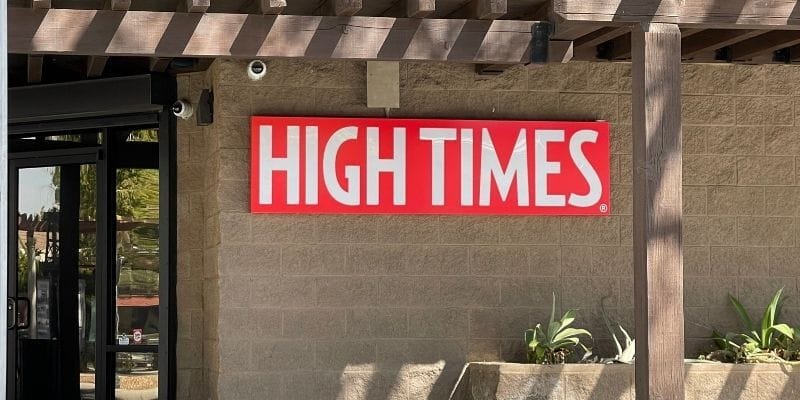
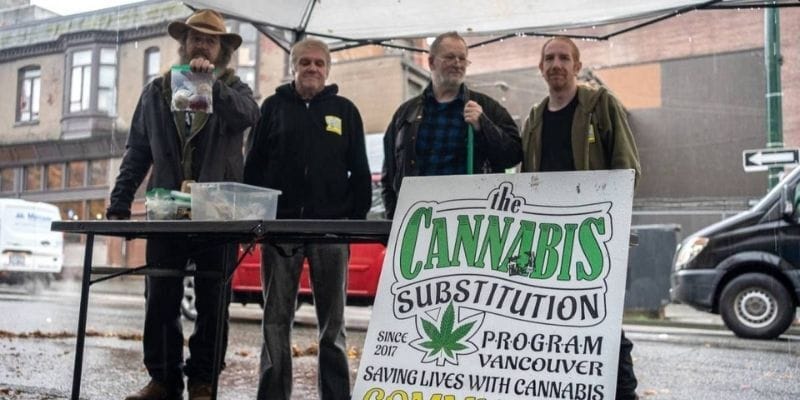
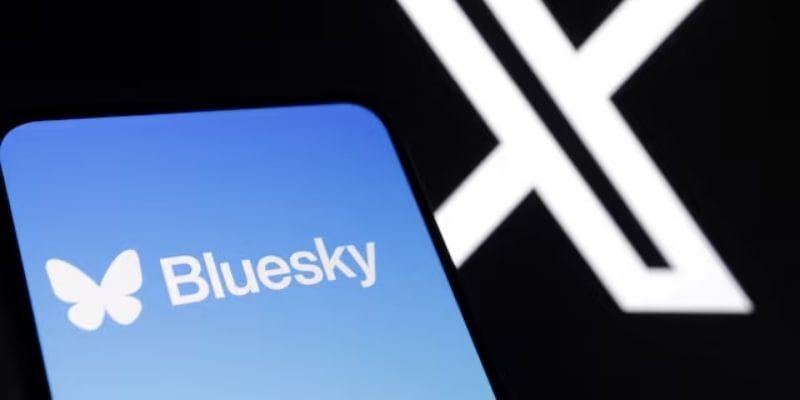
Reply